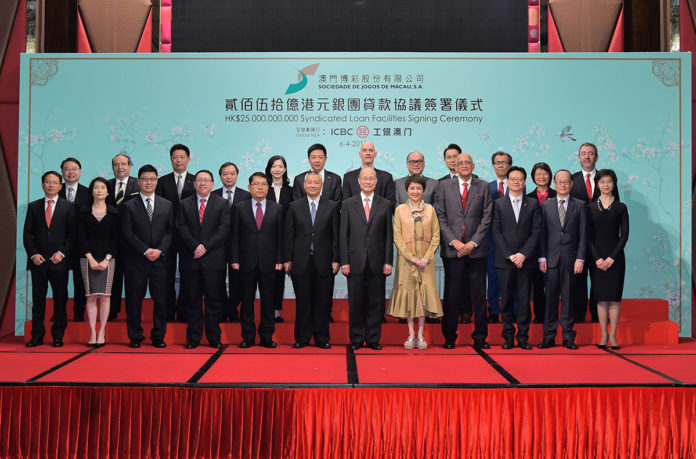The budget for the development of Grand Lisboa Palace is estimated at HK$36 billion (US$4.6 billion) Sociedade de Jogos de Macau (SJM) chairman Ambrose So Shu Fai announced yesterday.
According to the SJM chairman, Grand Lisboa Palace will likely open in the first half of 2018 with an anticipated 400 gaming tables, with the estimated cost taking into account “land costs, financial charges, preliminary and opening expenses.”
“We’re trying to catch up with the construction progress the best we can. In fact, we expect basic construction to be completed in 2017, not yet including internal construction works or that for other facilities. In addition, we need to obtain an operating licence from the government and occupancy permits,” Mr. So stated.
The businessman considered the property a “safe bet” since SJM was the last gaming operator to “complete [a gaming property]” without having much “pressure on cost escalation.”
A HK$25 billion loan
The statements were made on the sidelines of the signing ceremony for HK$25 billion-worth of syndicated loan facilities agreement – offered by a group of lenders to a single borrower – between SJM and 19 leading financial institutions.
The proceeds are to be mainly used to finance the construction of the Grand Lisboa Palace, with the agreement comprising a HK$15 billion term loan facility with final maturity in 2022 and a HK$10 billion revolving credit facility with final maturity in 2020.
The agreement involves 19 financial institutions from Mainland China, Hong Kong and Macau, with the Industrial and Commercial Bank of China (Macau) Limited serving as Global Mandated Lead Arranger and Bank of China Macau Branch as Senior Mandated Lead Arranger.
“The [Syndicated Loan Facilities] are oversubscribed by 1.2 times and are the largest syndicated loan facilities in Macau in recent years which will help boost the confidence in Macau’s economy after the economic contraction of the past few years,” the CEO of ICBC (Macau), Wu Long, said at the event.
With the loan agreement having been first announced in 2014, Mr. So refused to consider that the dwindling of gaming revenues in the following two years had affected the loan negotiations, saying three major issues led to the delay.
“There was a necessary revision of economic forecasts until the involved parties were satisfied with the figures (plus) the technical issues arising from the translation of legal documents to three languages and thirdly awaiting for government approval,” Mr. So said.
The SJM chairman said that the recovery of the MSAR gaming economy “not just gave him and the company confidence” in the future but also the banks, claiming secondary banks are “chasing” the participating entities in the loan agreement to participate in the agreement.
























